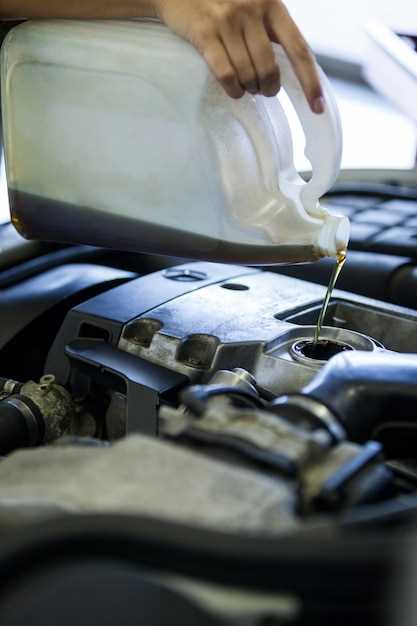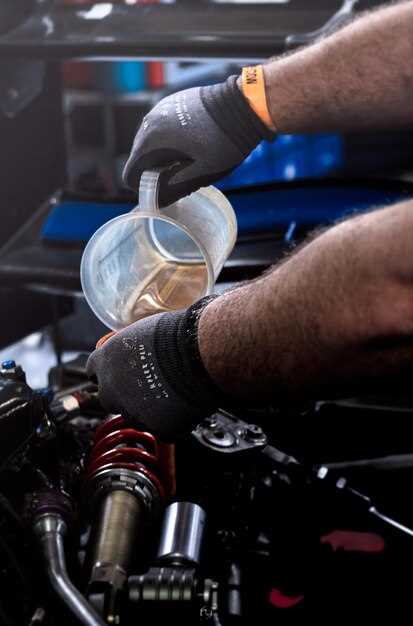Should You Use Engine Additives?

The performance and longevity of a vehicle’s engine are critical aspects that every car owner should prioritize. Among the various methods to maintain and enhance engine efficiency, the use of additives has become a popular topic of discussion. Engine additives are chemical compounds added to motor oils, fuels, or coolant systems, designed to improve performance, reduce wear, and prevent damage over time.
Many drivers find themselves asking whether these engine additives provide tangible benefits or if they are merely a marketing gimmick. The answer largely depends on the type of additive, the make and model of the vehicle, and the driving conditions it faces. Some additives may offer significant advantages, such as cleaning deposits, reducing friction, or enhancing fuel efficiency, leading to better overall engine performance.
However, it’s essential to approach the use of engine additives with caution. Not all products are created equal, and some may even have detrimental effects on certain engines. Understanding the specific needs of your vehicle and conducting thorough research before selecting an additive can ensure you make informed decisions that contribute positively to your engine’s health.
Impact of Additives on Engine Performance in Everyday Driving

Engine additives play a significant role in enhancing vehicle performance, especially in everyday driving scenarios. These products, when formulated correctly, can improve fuel efficiency, reduce friction, and minimize wear and tear on engine components. By maintaining optimal engine health, additives can lead to a smoother driving experience and longer vehicle lifespan.
A key benefit of using additives is their ability to keep the engine clean. Regular application can help remove carbon deposits and sludge that accumulate over time, ensuring that all parts of the engine operate efficiently. This cleanliness can translate into improved throttle response and increased power output, enhancing the overall driving experience.
Moreover, certain additives contain detergent qualities that help prevent the formation of harmful deposits. This is particularly important for engines that run on lower-quality fuels, as it mitigates the risks associated with impurities that could affect combustion efficiency. A cleaner combustion chamber means better fuel consumption and reduced emissions, which are critical for maintaining environmental standards.
Additionally, some additives are designed to enhance lubricity, which helps reduce friction between moving parts. This reduction in friction not only improves engine smoothness but also decreases heat generation, contributing to better engine health. Lower operating temperatures can lead to fewer mechanical failures, ensuring reliability during everyday use.
However, it’s essential to choose the right additives suited for your specific vehicle type. Overusing or improperly selecting additives can lead to adverse effects, potentially harming the engine rather than benefiting it. Therefore, understanding the specific needs of your engine and the composition of the additives is crucial for achieving the desired performance enhancements.
Evaluating the Cost-Effectiveness of Engine Additives for Long-Term Maintenance
When considering the incorporation of additives into your vehicle’s engine maintenance routine, it is crucial to assess their cost-effectiveness over time. Engine additives can include fuel system cleaners, oil additives, and other chemical enhancers designed to improve performance and longevity. However, their financial benefits must be weighed against their costs and the frequency of use.
One of the primary functions of engine additives is to enhance lubrication and reduce friction, which can lead to reduced wear and tear on engine components. By potentially extending engine life, these additives can decrease the need for costly repairs or replacements, which is a significant factor when evaluating long-term expenses.
Moreover, additives can improve fuel efficiency by optimizing combustion processes. This can translate into savings at the pump, further justifying their use. However, it’s essential to consider the initial investment. Quality additives often come at a premium price, so it’s advisable to research reputable brands and their proven benefits.
In terms of long-term maintenance, regular use of certain engine additives can mitigate common issues such as carbon build-up and oil degradation. This predictive maintenance approach minimizes the chances of unexpected breakdowns, which often come with high repair costs. Therefore, while initial expenditure on additives might seem hefty, the potential for savings through preventative measures could be substantial.
Ultimately, the decision to use engine additives should hinge on a thorough evaluation of your vehicle’s specific needs, the manufacturer’s recommendations, and your long-term maintenance goals. Keeping detailed records of performance and expenses associated with additives can provide valuable insights into their effectiveness, ensuring that your investment contributes positively to your vehicle’s longevity.
Identifying the Right Additives for Specific Engine Issues

To maintain optimal engine health, it is essential to select the appropriate additives tailored to specific problems. Different additives serve distinct functions, addressing various engine issues that may arise over time.
For example, if you notice a decrease in engine performance and fuel efficiency, a fuel injector cleaner can be beneficial. This additive helps remove deposits that accumulate in fuel injectors, ensuring a more efficient fuel spray and improved combustion.
In cases where you experience engine knocking or pinging, an octane booster can enhance the fuel’s resistance to premature ignition. This helps maintain engine health by preventing potential damage from knocking, especially in high-compression engines.
If your engine has a noticeable oil leak or you struggle with high oil consumption, consider using an engine oil additive designed to reduce friction and seal minor leaks. These additives can rejuvenate worn seals and gaskets, contributing to better oil retention and overall engine efficiency.
For engines that exhibit excessive heat, a coolant additive can improve heat transfer and help prevent overheating. Proper cooling is crucial for maintaining engine health, as prolonged exposure to high temperatures can lead to significant engine damage.
Finally, if you are dealing with sludge build-up, a detergent-based engine cleaner can help. These additives disperse deposits and sludge, ensuring that the engine operates smoothly and efficiently. Regular use can enhance engine longevity and performance.
Carefully diagnosing the specific issue and selecting the respective additive will not only address the current problem but also promote long-term engine health.

